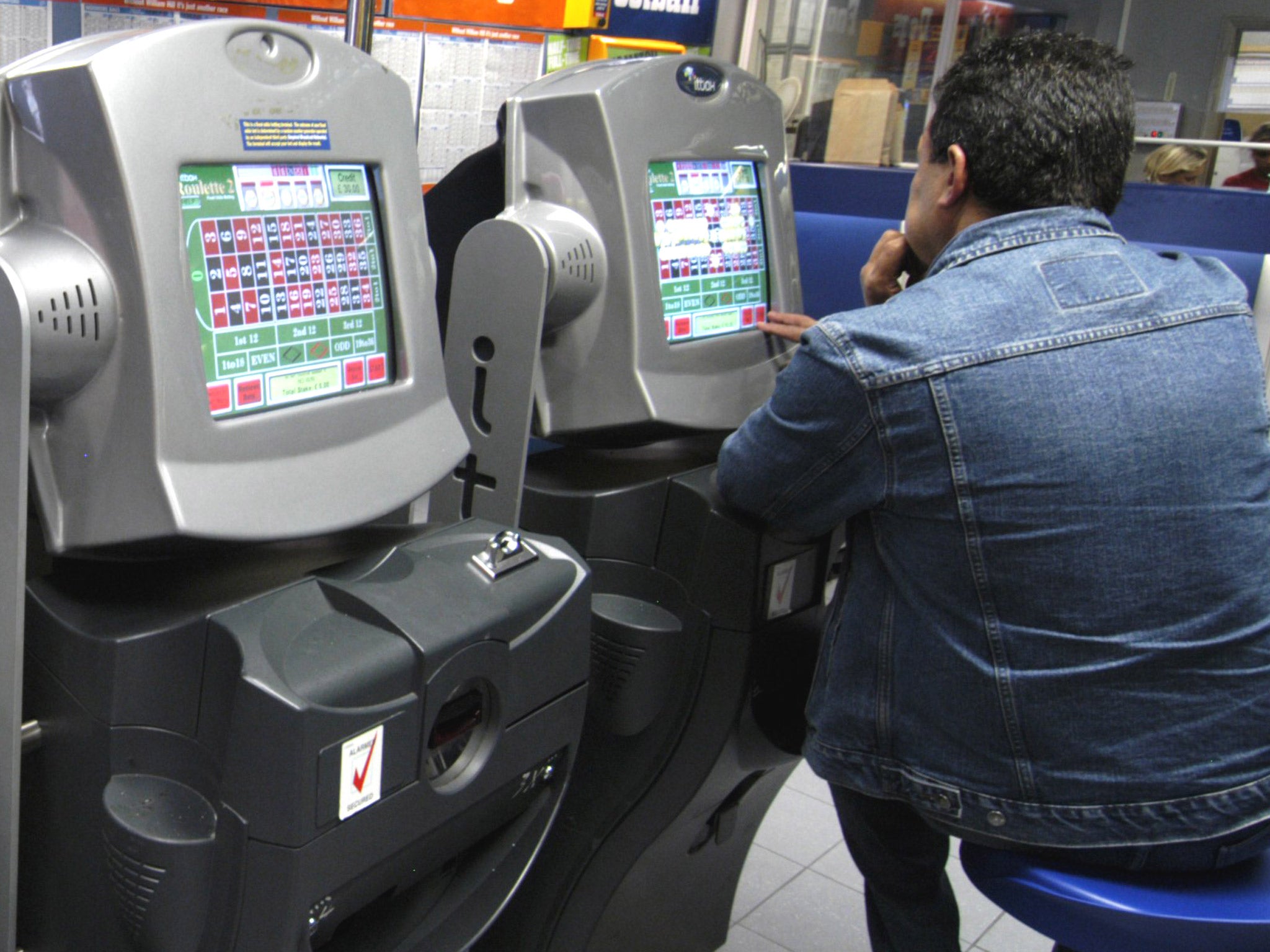David Cameron vows to curb 'problem' of betting shops on high streets
The number of high-stakes machines is limited to four in each betting shop, but Labour claims bookmakers have got round the rule by opening more branches – often in deprived areas

Councils could be handed new powers to curb the growth of betting shops on their high streets and limit the number of fixed-odds betting terminals (FOBTs) inside them.
David Cameron admitted that there is a “problem” that needs to be addressed and offered to work with Labour to secure a cross-party consensus on how to tackle it.
Although the gambling industry was liberalised by the previous Labour government, Ed Miliband has called recently for action to tackle the rising number of betting shops and machines allowing people to stake up to £100 on a single bet, which means they can lose £300 a minute. Other terminals have a £2 limit.
The number of high-stakes machines is limited to four in each shop, but Labour claims bookmakers have got round the rule by opening more branches – creating “mini-casinos”, often in deprived areas.
According to the Gambling Commission, 51 per cent of the net takings in betting shops came from FOBTs in 2012-13. There are more than 33,000 such machines, making over £1.5bn every year.
Conservative politicians including Boris Johnson, the Mayor of London, and Sir Merrick Cockell, chairman of the Local Government Association, have joined the call for limits on the number of betting shops.
Labour is proposing a change in planning rules so that bookmakers need to apply for planning permission to open new premises that were not previously a betting shop. At present they do not need consent if they take over premises previously used by a bank, building society, employment agency or other “financial and professional” service.
Labour also wants new rules for FOBTs to increase the time between plays from 20 to 40 seconds and bring in “pop-ups” reminding players how long they have played and how much they have staked and lost.
The Government looks set to adopt some of these ideas when it completes a review of the problem this spring. Helen Grant, the Culture Minister, told MPs that the gambling industry will introduce some measures at the end of March to protect people who play the high-stakes machines. She said she had challenged the UK’s five largest bookmakers to act and that the Government would not delay taking the necessary action.
Earlier when Mr Miliband raised the issue at Prime Minister’s Questions, Mr Cameron told him: “This is a problem, it does need looking at, we have a review under way, frankly we are clearing up a situation that was put in place under the last government, but I think if we work together we can probably sort it out.”
Urging councils to make full use of the existing powers, Mr Cameron said: “I’m not arguing that is job done, there may well be more to do, but we have a review under way.”
He insisted the number of high-stakes machines had fallen. Figures show it dropped from 33,663 in 2010 to 33,209 last year.
Mr Miliband argued that local authorities needed more powers. He said: “One in three calls to the gambling helpline is about these machines and they are clustered in deprived areas. For example, there are 348 in one of the most deprived areas of the country, Newham… Local communities believe they already have the evidence – shouldn’t they be given the power to decide whether they want these machines or whether they don’t want these machines?”
But Labour was accused of hypocrisy as it staged a Commons debate on the issue last night. John Leech, the Liberal Democrats’ spokesman on culture, said: “I will take no lectures from Labour on this issue, whose cultural contribution to our high streets were lap dancing bars, 24-hour drinking and the explosion of betting terminals.”
He added: “Labour has done a complete U-turn on a policy it implemented in government and is trying to score cheap political points.”
Join our commenting forum
Join thought-provoking conversations, follow other Independent readers and see their replies
Comments
Bookmark popover
Removed from bookmarks